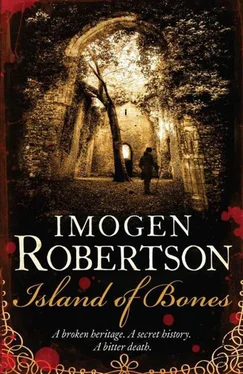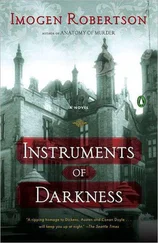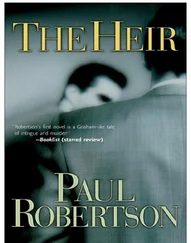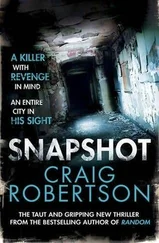Imogen Robertson - Island of Bones
Здесь есть возможность читать онлайн «Imogen Robertson - Island of Bones» весь текст электронной книги совершенно бесплатно (целиком полную версию без сокращений). В некоторых случаях можно слушать аудио, скачать через торрент в формате fb2 и присутствует краткое содержание. Год выпуска: 2011, ISBN: 2011, Издательство: Hachette Littlehampton, Жанр: Исторический детектив, на английском языке. Описание произведения, (предисловие) а так же отзывы посетителей доступны на портале библиотеки ЛибКат.
- Название:Island of Bones
- Автор:
- Издательство:Hachette Littlehampton
- Жанр:
- Год:2011
- ISBN:9780755372058
- Рейтинг книги:3 / 5. Голосов: 1
-
Избранное:Добавить в избранное
- Отзывы:
-
Ваша оценка:
- 60
- 1
- 2
- 3
- 4
- 5
Island of Bones: краткое содержание, описание и аннотация
Предлагаем к чтению аннотацию, описание, краткое содержание или предисловие (зависит от того, что написал сам автор книги «Island of Bones»). Если вы не нашли необходимую информацию о книге — напишите в комментариях, мы постараемся отыскать её.
Island of Bones — читать онлайн бесплатно полную книгу (весь текст) целиком
Ниже представлен текст книги, разбитый по страницам. Система сохранения места последней прочитанной страницы, позволяет с удобством читать онлайн бесплатно книгу «Island of Bones», без необходимости каждый раз заново искать на чём Вы остановились. Поставьте закладку, и сможете в любой момент перейти на страницу, на которой закончили чтение.
Интервал:
Закладка:
How unlucky, however, is the man who outlives his most successful and happy years! In ’44 Sir William purchased the land on which stood Gutherscale Hall itself, and convinced he was now the true inheritor of the lands of the ancient Greta line, declared he would take his family to that ancient Hall and make it their own. However, the tragic fire of ’45 which rendered that great house a ruin, intervened, and Sir William’s frustration was extreme. Not even the title of Lord Keswick could mitigate his disappointment. Nor were his family able to lighten his burden. His eldest son began to develop an unsavoury reputation as a gamer and libertine, and his younger brother was thought of as an awkward and eccentric child. His lovely wife, Lady Julia, began to spend more time in Town, and after her death, Lord Keswick became a complete recluse, his solitude alleviated only by the presence of his young daughter till she too left his once-happy home for her schooling. His death at the hand of his eldest and favourite son made a tragic finale to his history. One can only hope that in his last moments he was ignorant of whose hand had dealt the fatal blow. His second son sold the estate entire to a Mr Briggs and now is thought to travel incognito on the continent. His daughter has made a home with her mother’s relatives in Ireland. Thus we see that though ambition can make a man, it can also poison our happiness with frustration at the last .
Yours c W. L .
PART III
III.1
Thursday, 17 July 1783
At some point in the night the storm ceased as abruptly as it had started. When Harriet awoke to the light rap of the maid on her door she felt a lightness, expecting that the storm must have broken the heat of the weather, and the day would content itself now with a more pleasant temperature.
‘Good morning, Miriam,’ she said, pulling herself up onto her elbow. ‘You have learned I am an early riser then.’
The maid set a cup of tea by Harriet’s bed and began to tidy the room. ‘That didn’t take long, madam. I shan’t go to any of the others for a while yet, but I thought I might take the chance you were wakeful. It’s still hot and close, madam. The lawns are steaming.’ She folded Harriet’s stockings over her arm and smoothed them. ‘I did glance in at poor Mr Quince. He’s sleeping, but I didn’t like the look of him.’
Harriet sat up and put her hand to her forehead. ‘I shall look in on him directly. I should not have encouraged him to go to the fireworks after that soaking.’
Miriam shrugged, and unhooking Harriet’s dressing gown from the back of the closet door, she brought it over to her. ‘You weren’t to know, madam.’
Harriet slipped it over her shoulders, enjoying the brief coolness of the fabric. ‘Did the storm cause much damage?’
‘Not to us. Hail broke a couple of panes of glass in town, and the butcher’s boy had a job of it to make it up to us this morning, the path was so covered in branches torn down. Though, he had such a story!’ The girl paused, looking at Harriet uncertainly.
‘Do tell me, Miriam.’
The maid perched briefly on the edge of the bed. ‘Seems the Black Pig was broken into last evening. Looks like mischief mostly. Tom and his wife were shut into their room, but that’s where they keep the money, under their bed, so there’s luck, but furniture was thrown about, and all the pewter from the mantel chucked to the floor. Lucky for them the storm was so lively, or Tom would have heard them and been down there with his cudgel! They didn’t know a thing of it until daybreak and they found their door jammed. Tom had to climb out of the back window.’ She suddenly became conscious of her seat on Harriet’s bed, and stood quickly. ‘But I must be off, Mrs Westerman.’
‘One moment, Miriam.’ Harriet held up her hand. ‘How many servants are there at Silverside?’
The maid paused at the door. ‘Nine in the house, madam. But if you are wondering who put that note under Mr Crowther’s door yesterday, it was me. Charlotte Tyers is my godmother. She placed the paper in my hand and asked me to get it to the baron quietly, and so I did. Do you need any help to dress?’ Harriet shook her head. ‘Then I’ll wish you good morning, madam.’
Crowther was not, by inclination, an early riser. From his youth he had felt most comfortable in the hours of darkness, letting his mind wander undisturbed among its own peculiar pathways of experience and observation, with no other guide than the silence of his work room and the flutter of candlelight. It was a habit his few friends knew well. One evening earlier in the year Crowther had been walking with Mrs Westerman in the walled garden behind her house at Caveley. He had been explaining to her some detail of his work as the evening began to fold around them, when he had noticed her smiling in the gloom. Suspecting her attention had wandered away from the topic under discussion he had asked her, rather sharply, what she was grinning at.
She had plucked a fragile-looking bloom from a pale-green climbing plant on the wall behind her and handed it to him. Around a yellow eye its white petals were open like a pin-wheel and its scent was delicate.
‘Night-flowering Jasmine, Crowther,’ she said. ‘I happened to notice it while you were speaking. During the day it is tight closed, then when it grows dark it begins to bloom, as you do.’ She moved on along the gravel. ‘As far as you are able.’
Crowther had made no reply, but placed the flower in his waistcoat pocket and the conversation had drifted on its own way. Later that night though, as he prepared his work back in the shades of his own establishment, he had found the flower again, and placed it in the drawer of his desk amongst his papers before he opened his notebook and picked up his pen.
He was prepared therefore for Mrs Westerman’s surprise when, on the morning after the firework display, he ventured into the gardens to find her before breakfast. Harriet was sitting on a low wrought-iron bench which offered a fine prospect over the lake, reading a letter. The tables and chairs from the entertainment had been cleared away to leave the view uninterrupted once more. As Crowther’s footsteps shifted the gravel, she looked over to him, and after raising her eyebrows and rather pointedly consulting her pocket-watch as he approached, her smile faded and a look of concern crossed her face. He realised he probably looked as tired and sick of his own thoughts as he felt. He took a seat beside her and for a moment watched the flat mirror of the lake, the cultivated shore opposite and the fierce crags of stone rising above them, holding the water and people below it in their appointed places. It was a view his father had spent many hours admiring, contemplating the land he had made his own, the land Crowther had sold as quickly as he might.
Crowther had never been fond of his father. From his childhood Sir William Penhaligon had appeared a dangerous, unpredictable being, best avoided. Crowther had never learned how to please him, realised his father thought him a strange, alien being in his home. They shared no interests, and it seemed at times they hardly shared the same language. Crowther recognised that his father must have had some abilities; after all, Sir William had been born a baronet with nothing but debt to polish his title with, but died a rich man and Lord Keswick. That indicated he had both political and financial skills; however, to Crowther he had appeared nothing but a bully.
When Crowther was much of the age of Stephen Westerman, his father had decided over breakfast that he would teach his younger son to swim. Crowther had tried to run away, but was not quick enough for his father or his father’s servant Ruben Grace. He had been carried to the lake struggling and biting, then bundled into the rowing boat kept tied up at the landing-stage on the edge of the water. Sir William had pulled on the oars till they were some thirty yards from the shore, then ordered his servant to throw his son into the water. Crowther could still remember his own protests, the sense of powerlessness then the grasping cold as he was cast into the lake. The shock of it had stopped his tears at once.
Читать дальшеИнтервал:
Закладка:
Похожие книги на «Island of Bones»
Представляем Вашему вниманию похожие книги на «Island of Bones» списком для выбора. Мы отобрали схожую по названию и смыслу литературу в надежде предоставить читателям больше вариантов отыскать новые, интересные, ещё непрочитанные произведения.
Обсуждение, отзывы о книге «Island of Bones» и просто собственные мнения читателей. Оставьте ваши комментарии, напишите, что Вы думаете о произведении, его смысле или главных героях. Укажите что конкретно понравилось, а что нет, и почему Вы так считаете.












